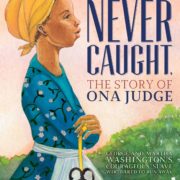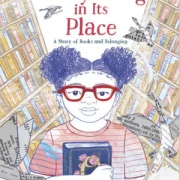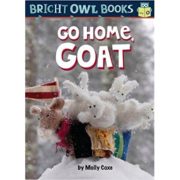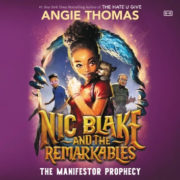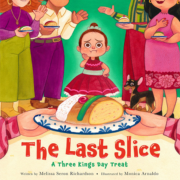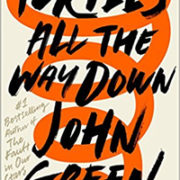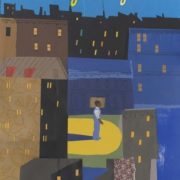THE LOST YEAR by Katherine Marsh
I try to make it a point to read a handful of the National Book Award winners and finalists each year. When Katherine Marsh’s newest novel The Lost Year came across my desk emblazoned with a silver finalist medal, I knew I had to add it to my to-read list.
The Lost Year begins, and is told through, Matthew, a preteen boy living in New Jersey at the start of COVID. His journalist father is stuck in France and his busy writer mother tasks him with organizing his great-grandmother’s boxes. GG, as she is affectionately called, recently moved in with Matthew and his mother after her 100th birthday. As Matthew reluctantly goes through the boxes, he uncovers a treasure trove of mementos, letters, and family history. He also unravels a secret his GG has been carrying with her for over 80 years.
The items in the boxes tell the story of three girls named Mila, Nadiya, and Helen, in the 1930s. Mila and Nadiya live in Soviet Ukraine, though under very different circumstances. Helen lives in Brooklyn with her brother and parents, who emigrated from Ukraine before she was born. Mila Lomachenko loves her father, who is a leader in the Soviet Union’s Communist Party. She also loves “Papa Stalin,” the USSR’s affectionate nickname for the dictator Joseph Stalin. She is steadfast in her commitment to the cause, attending youth Party meetings and parroting propaganda to anyone who will listen. She believes that the hungry people in the streets have brought it upon themselves. Everything changes when she meets Nadiya, a young girl who shows up at her front door late one night. Nadiya is frail, very hungry, and recently orphaned. Her entire family perished from the government-orchestrated famine after their farmland was seized. Meanwhile, Mila’s entire worldview and trust in authority begins to crumble. If Mila helps Nadiya, there could be dire consequences for her family. The decision she makes could alter the course of both their lives.
Across the Atlantic, Helen Lomachenko wishes there is more she could do to help her Papa, who recently suffered a heart attack. Unbeknownst to her, he has been trying to bring his family in the USSR to the United States. Helen’s mother is working two jobs, and her younger brother Peter is blissfully unaware of the situation or the famine in Ukraine. With some prodding from her school friend Ruth, Helen begins recording her neighbor’s stories of their families’ lives in the USSR. She becomes intent on setting the story straight and doing something about her family.
I hesitate to say more about this book because I don’t want to divulge too much. Matthew, Nadiya, Mila, and Helen are brave and tenacious. However, they aren’t perfect. They have to weigh comforts versus ethics. Such weighty decisions are difficult for adults, let alone young teenagers. Frankly, Matthew would rather play Switch than sit with his centenarian great grandmother. He misses school and he wishes his dad were there. Shy Helen is scared to speak up. A connecting thread amongst these characters is courage, belief in humanity, and devotion to family that is stronger than fear or a desire to maintain the status quo.
I thoroughly enjoyed this book. I enjoyed reading about Mila, Nadiya, Helen, and Matthew. I did not know much about the government-created famine (also known as the Holodomor) which, as the characters discover, was intentional on behalf of Stalin’s Communist Party. I appreciated the author’s note where Marsh tied the events and the characters to her family history. The Lost Year is a heavy read, but it’s an important one. Hand this to your upper elementary/middle school historical fiction readers (after you read it, of course).

